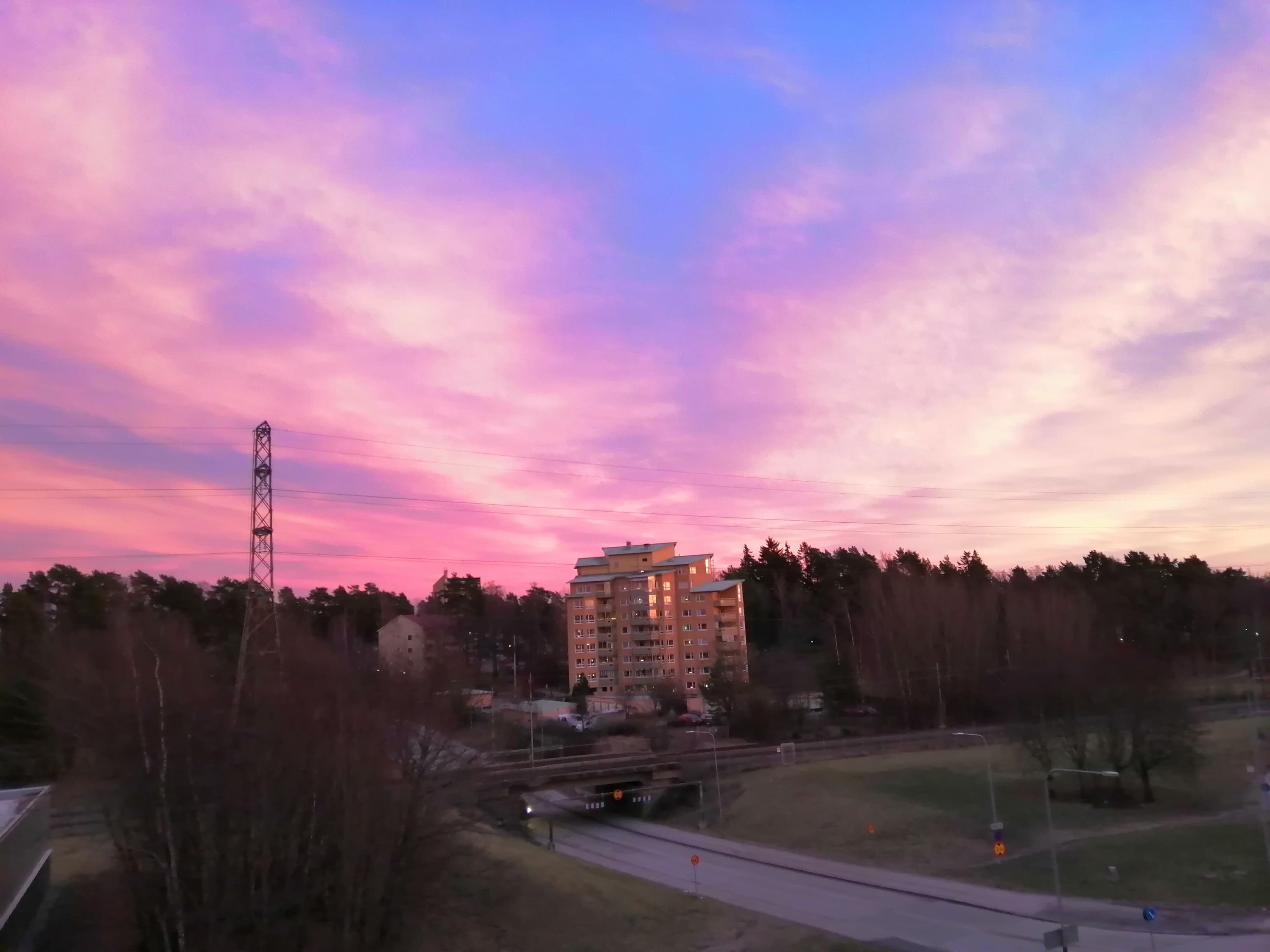December 8, 2020 – Yesterday, TCN reported that Croatia is among the most sought after tourist destinations for people in Sweden. Today, we meet a couple who went the other way – from Osijek to Sweden – for a more permanent stay. How does life compare for young couple Marin and Vedrana?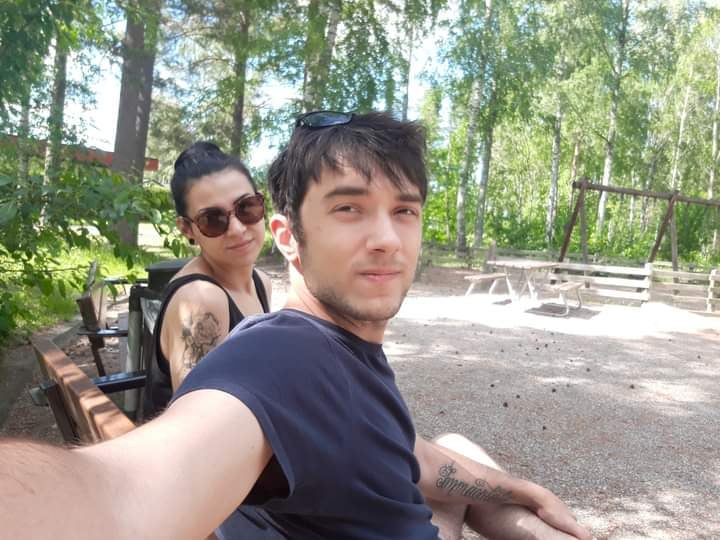
Marin Relja from Darda (25) and Vedrana Maksimovic from Sarvaš (24) swapped Slavonia for Västerås in June of 2019. We interviewed them to find out some of the ways life compares when you move from Osijek to Sweden.
Marin: We lived with parents when we were back in Osijek. A lot of the time we spent at Vedrana's parents, we had our own space there, which was great, but we didn't have total freedom. There were always quite a lot of other people around and when you are surrounded by family, certain responsibilities are put on you. It's much easier to live by yourself.
Vedrana: If we'd stayed in Osijek, probably we would have needed some support from our families so we could live together, independently. Here, we can do that by ourselves.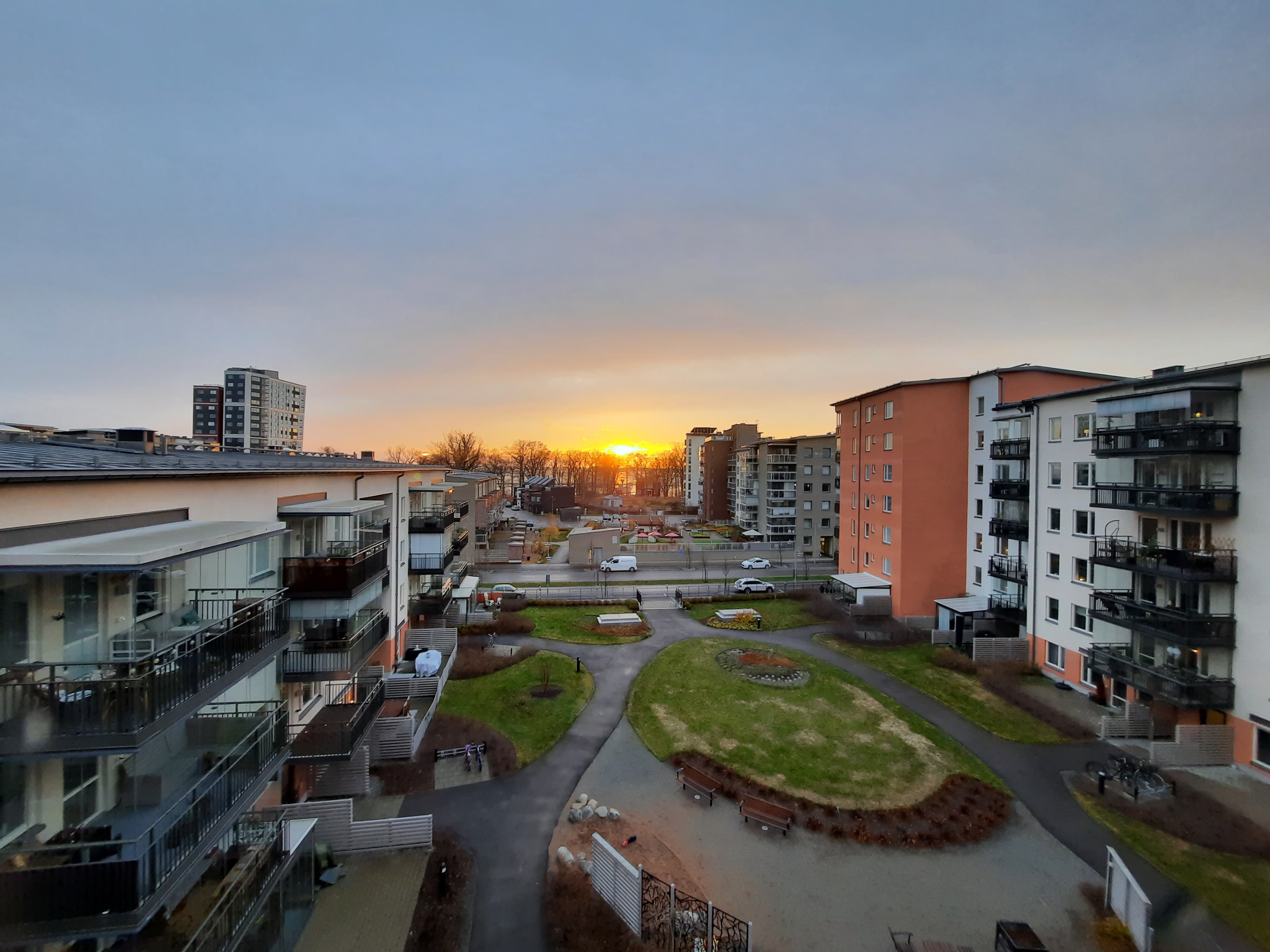 Marin and Vedrana's new neighbourhood, in Västerås, Sweden
Marin and Vedrana's new neighbourhood, in Västerås, Sweden
Why did you move from Osijek to Sweden?
Marin: There are lots of different reasons - opportunities, money, the church...It's cold. And there is a lot of snow. I like winter a lot more than summer. If it's cold, you can always put on more clothes. If it's too hot, what can you do?
Vedrana: I hate the winter and cold weather, actually. Marin wanted to come here. And my brother was already here. Maybe because it's totally different? Marin wanted to go to Ireland or Sweden. But, Ireland is a religious country, Catholic, like back home. We didn't want to live in another place like Croatia. I was here visiting, one year before we came, and it was -15. Freezing. Right now it's not so bad, around 4.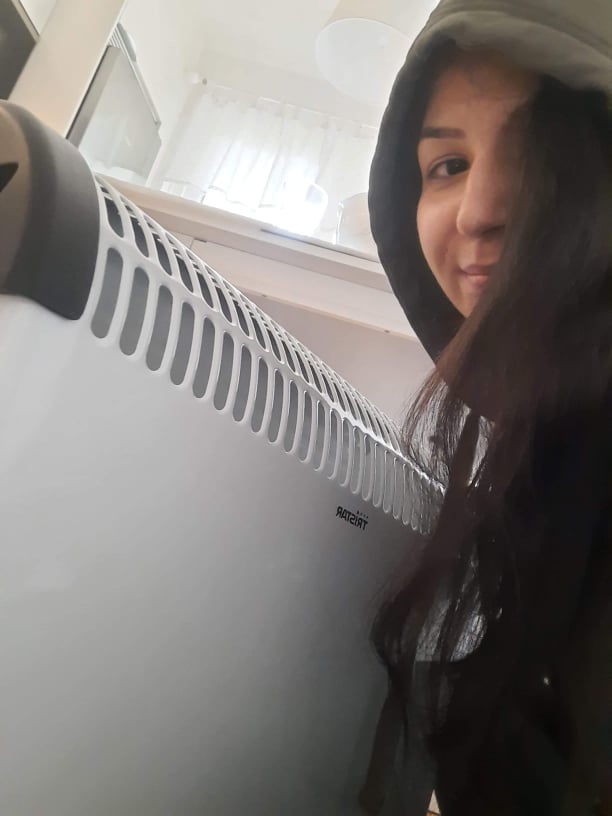
Vedrana doesn't like the cold. Marin's dream job is riding snowmobiles all day.
Marin: It can be -10 here but feel like -30 because the winds are sometimes very strong. Last winter wasn't so bad, but if you're on the windy side, it can feel really cold. I wear Christmas socks a lot. They're very warm. I have many pairs.
I saw you also have many pairs of papuče (slippers) by your front door. Why?
Marin: The tradition isn't going to die (Vedrana laughs). We brought that tradition with us from Osijek to Sweden. Most of them are for us, so we can wear different pairs, but some are for guests, although we rarely have any. We just have extra papuče that we don't use.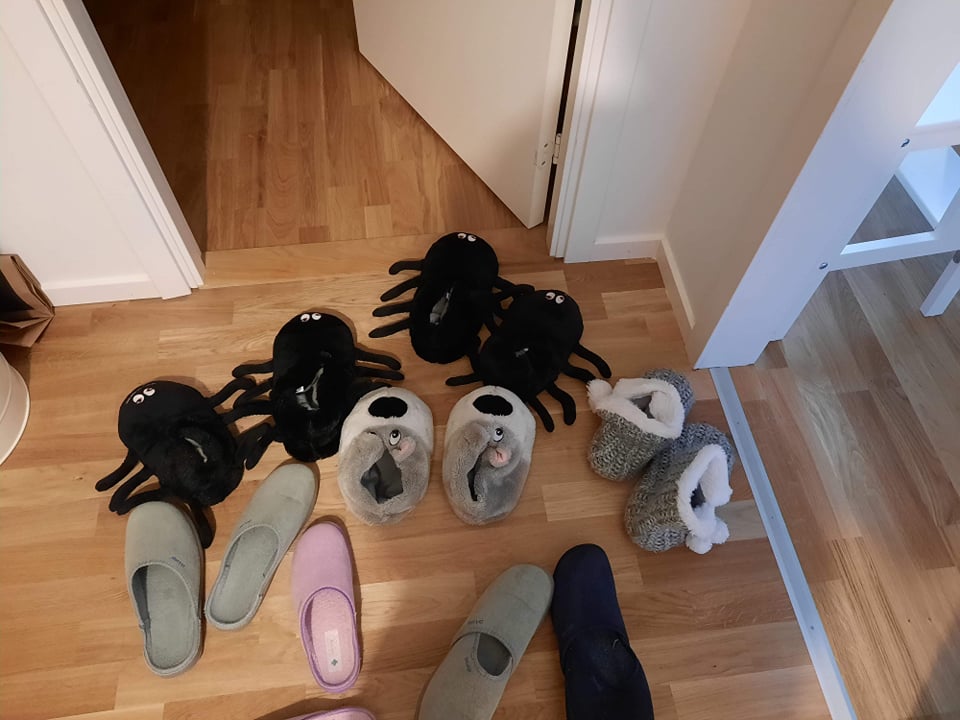 Croatians overseas: a tsunami of papuče
Croatians overseas: a tsunami of papuče
Vedrana: Our apartment here costs around 800 Euros per month. That includes water and payment for cleaning of the communal areas of the building. We pay extra for electricity, wifi and home insurance. Home insurance is mandatory. It costs around 100 Euros a year.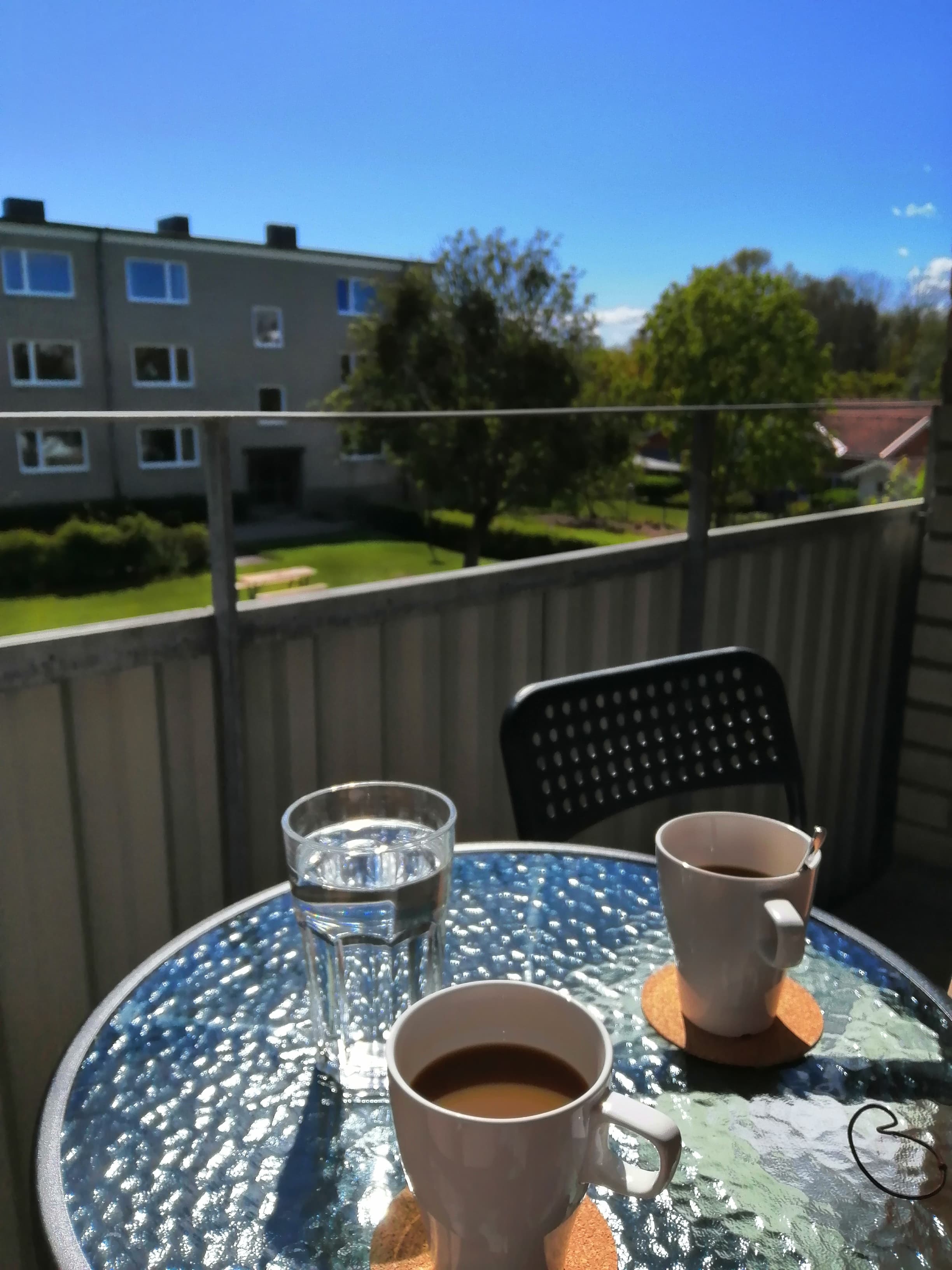
Marin: We came to Västerås because Vedrana's brother was here, but now he moved to another place. He helped us find an apartment when we first arrived. It's difficult to arrange an apartment from Osijek to Sweden with an agency - you actually have to be here. It's not something we could do online before we came.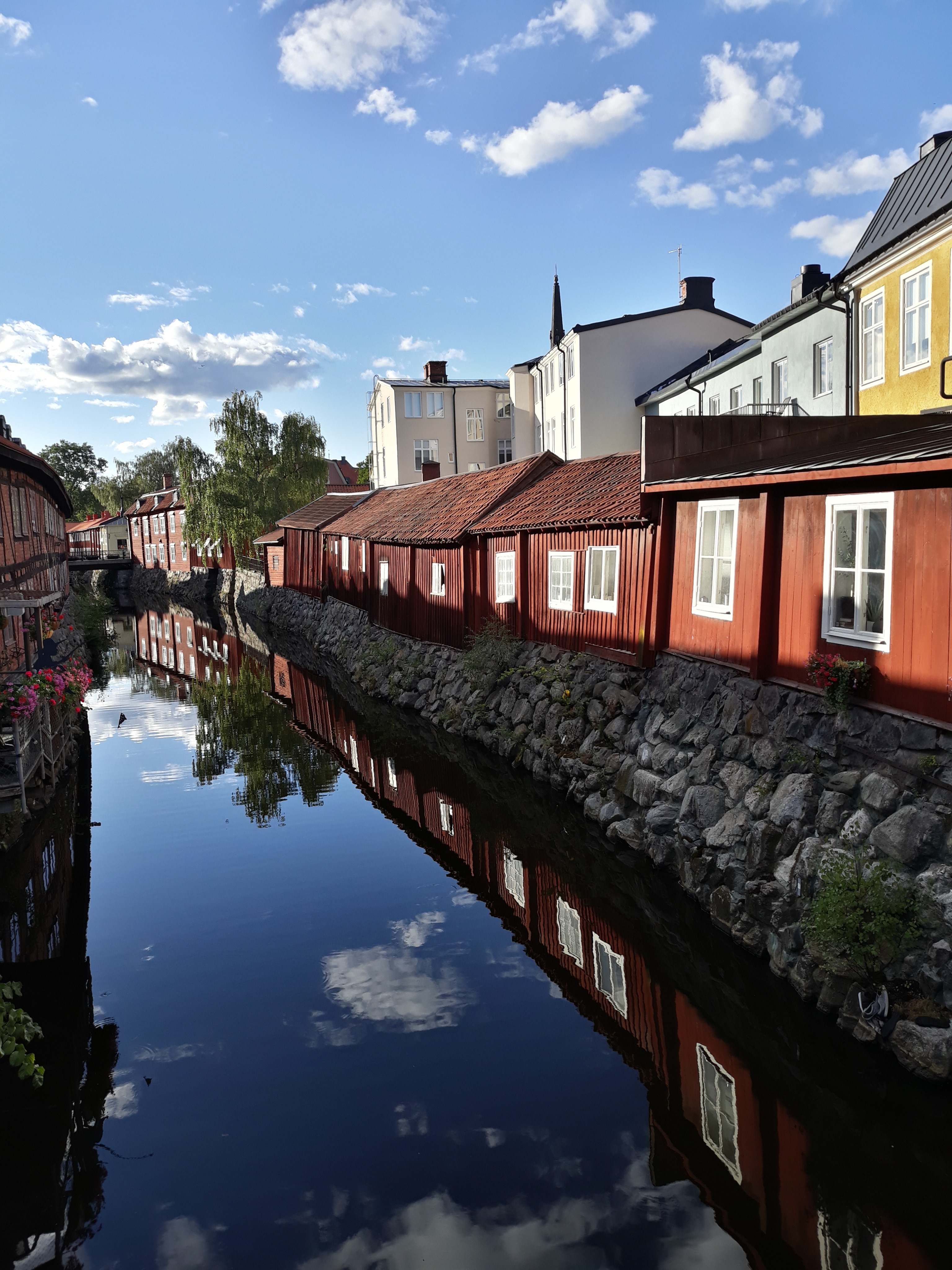
Vedrana: We were saving for around a year before we came, in preparation. We got around 30, 000 kuna. We spent it on travelling here, start up and the first apartment. My brother's wife worked in a company here and she made a recommendation for me and I started to work there. Then, I made a recommendation for Marin. Everything here is made with recommendations. Everything. Our company offers services. Anything you could think of. Home services, customer services. Sometimes you might be sent gardening, babysitting, fixing something in someone's home, painting a room, window or home cleaning, helping someone move house. Sometimes the client is a private individual, other times it's a company.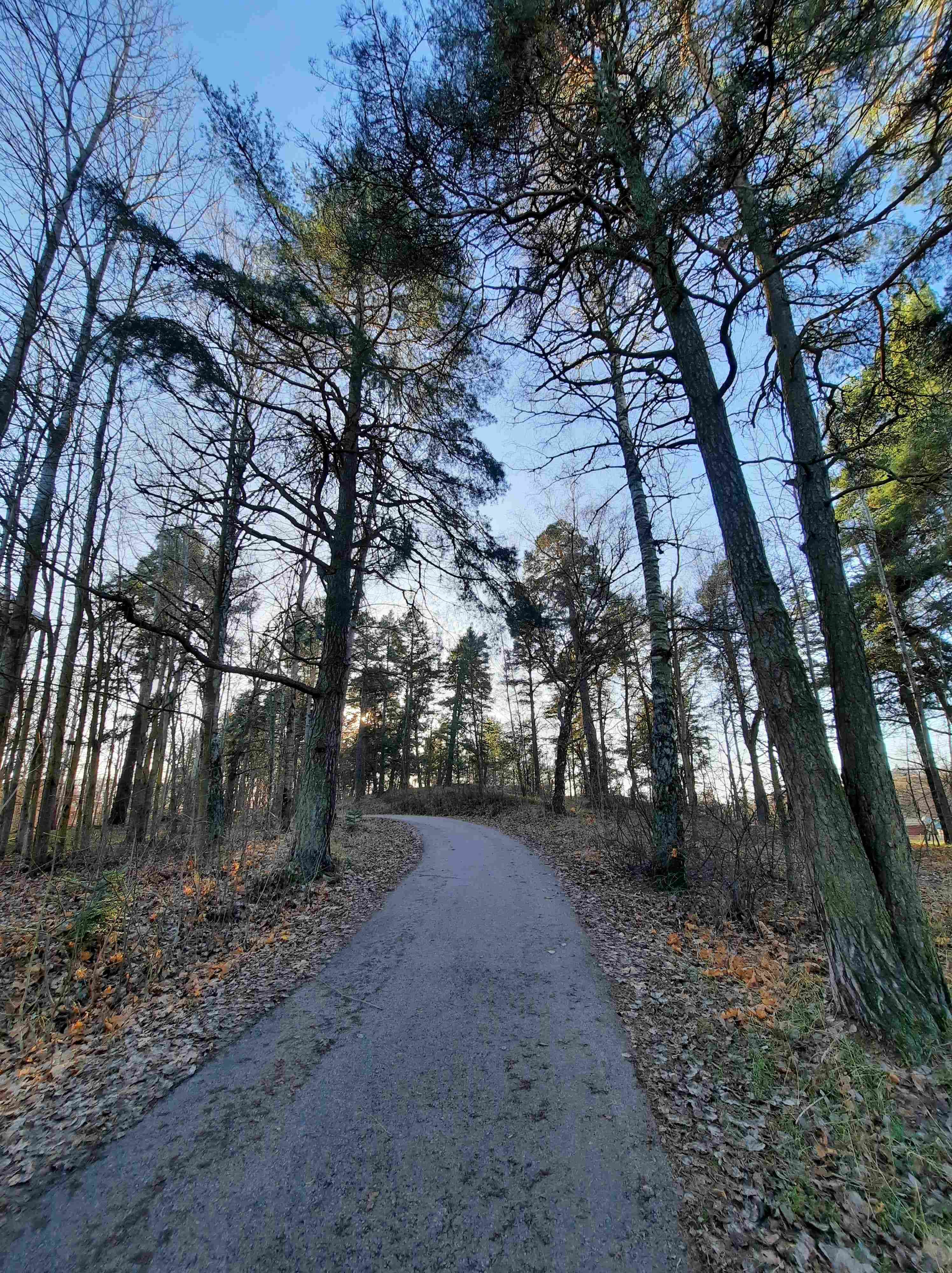
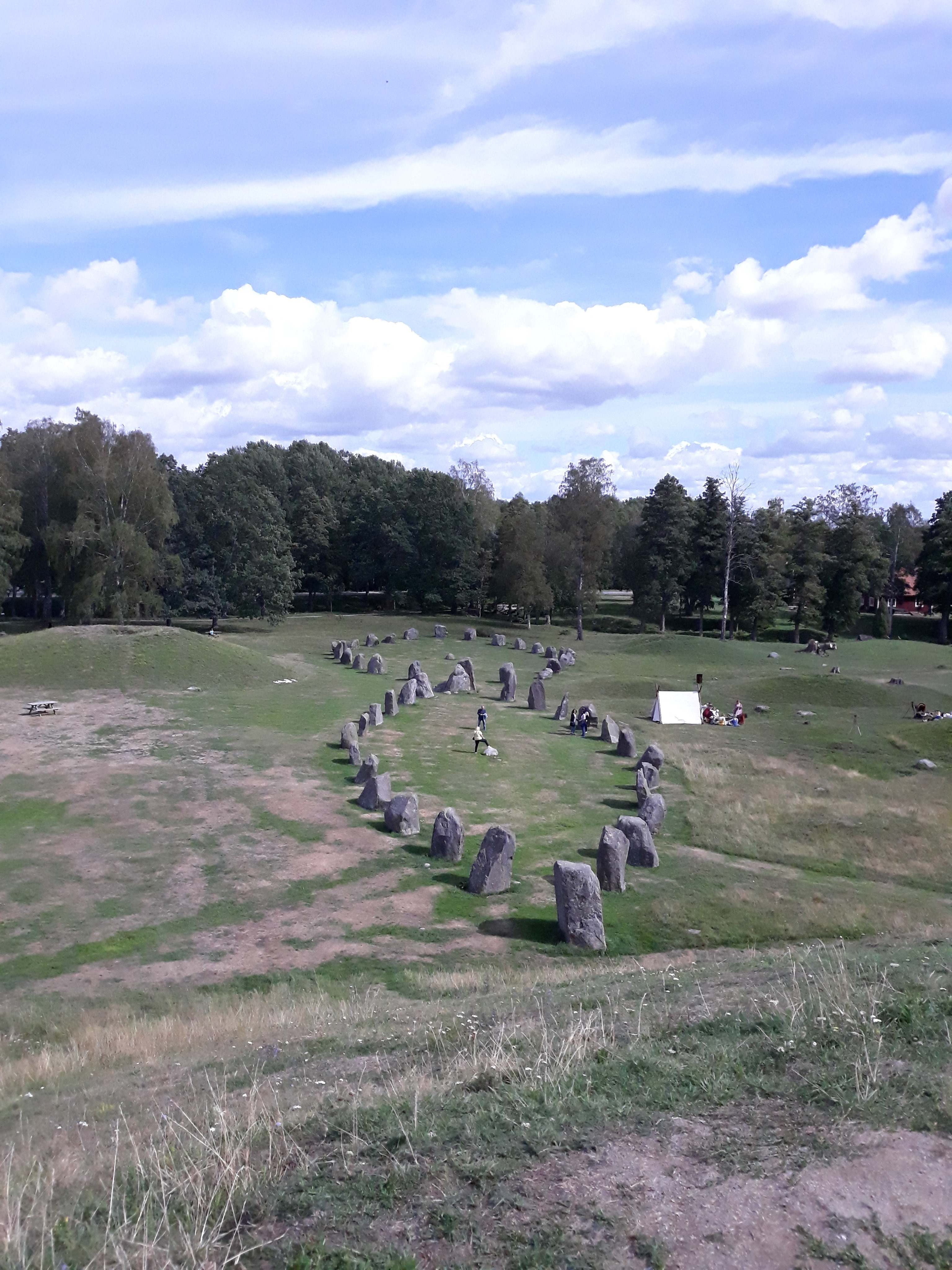 "We like going for walks here. The scenery is very different to Slavonia" Vedrana
"We like going for walks here. The scenery is very different to Slavonia" Vedrana
Vedrana: We don't work full time here. We work around 75% of a full-time job. So, it's part-time. But still we have enough money to live and much more than back in Osijek. In Osijek, for working in the store full time, I earned 400 Euros per month. As a waiter, Marin earned around 600 Euros per month, depending on tips. Here, after tax, we earn around 1200/1300 Euros each. Sometimes Marin earns more because he can drive and so he can be sent outside of the area to do jobs. He is paid for his driving time.
Vedrana: Around one week ago, I bought myself some boots for 200 Euros. I would never have been able to do something like that in Osijek. When we went food shopping in Osijek, we always went with a list. If you didn't have a big salary, like us, you have to count what you are spending. Here, we don't do that. If I see something that I like, I will buy it.
What jobs would you like to be doing there?
Marin: I would like to work as a graphics technician or as a waiter again. I like being a waiter, I like working in hotels. Of course, my dream job would involve driving a snowmobile all day.
Vedrana: I would like to be a care assistant, but I need to learn Swedish first and then go to school.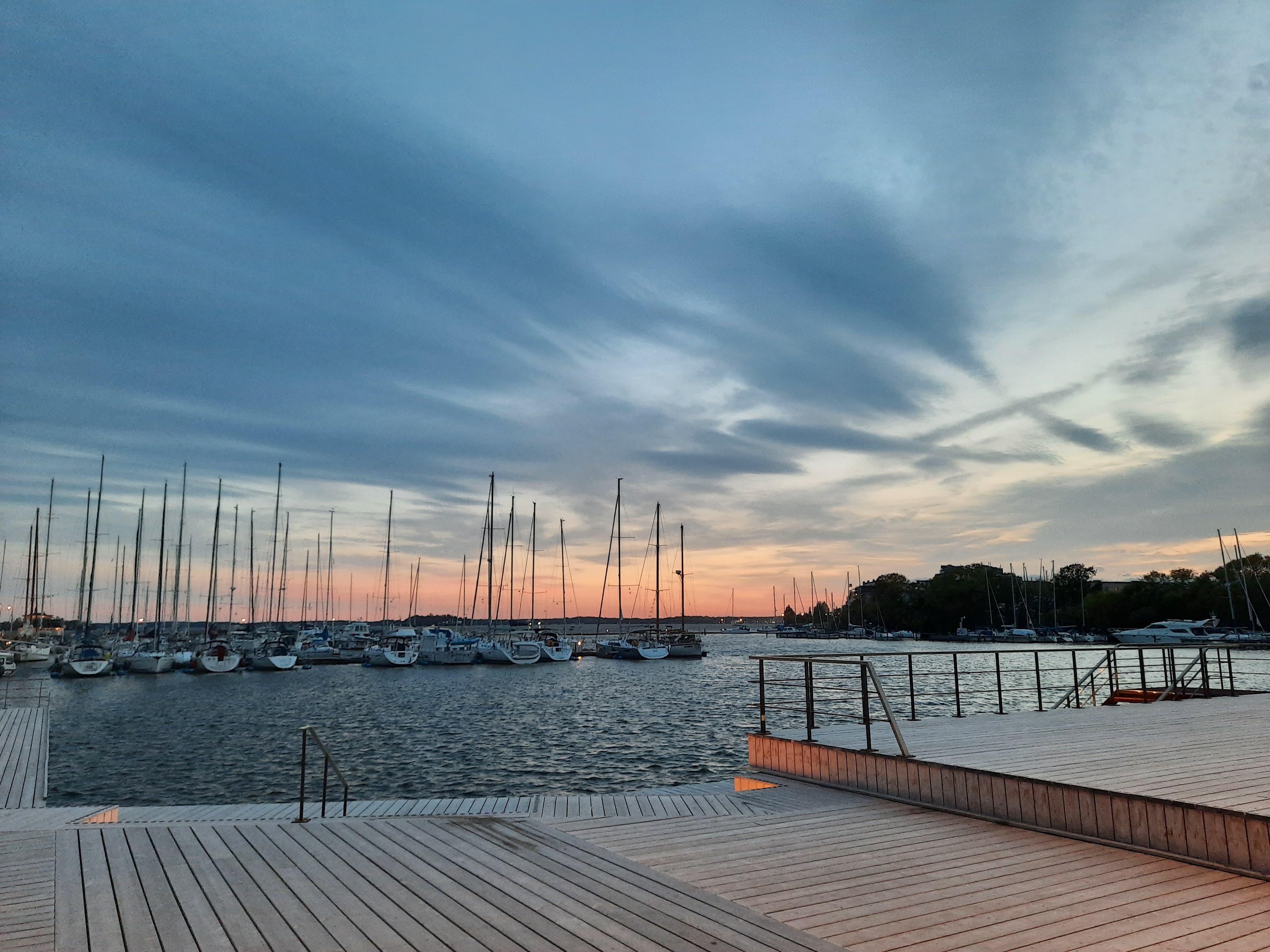
Marin: We had nothing when we arrived. We had two small chairs and we borrowed a thin mattress from her brother that we slept on. We bought pans, pots, plates, glasses and knives and forks first. Next, we bought a table and chairs. Then, we acquired a bed, we bought a sofa. After that, we stopped buying anything until we found an apartment that we could see ourselves living in for a long time. That's the one we are in right now, it's our third apartment here.
Did you meet any other people from the Balkans in Sweden?
Vedrana: Yes. I met a lady in an apartment agency. She took our ID details to check our backgrounds and when she saw our names, she said “Maksimovic? Where are you from?”, in English. When we said “Croatia”, she said “Pa mozemo i ovako pricati (well, we can talk like this)”. She was from Sarajevo. She came here 10 years ago. Another time, I went to a woman's apartment to work for the day. As a client, she already had my name and details. When she opened the door, I said hello and asked if she spoke English. She replied. “Možemo pričati na našem”. Her name is Elena and she is from Belgrade. We still see her sometimes, she is nice. She's been here around 20 years.
How difficult it is to learn Swedish?
Vedrana: It's really hard.
Marin: It's easy. I started when we were still in Croatia, just to get some basics. A few months ago, we started school. I learned English and German in both elementary and secondary schools. You can see the associations of those languages with Swedish.
Vedrana: The accent is difficult. You must make different sounds with your mouth than we have in Croatian. It's a very beautiful language when you hear it. It's not like German.
Marin: They sound funny when they talk. It sometimes sounds like they are singing.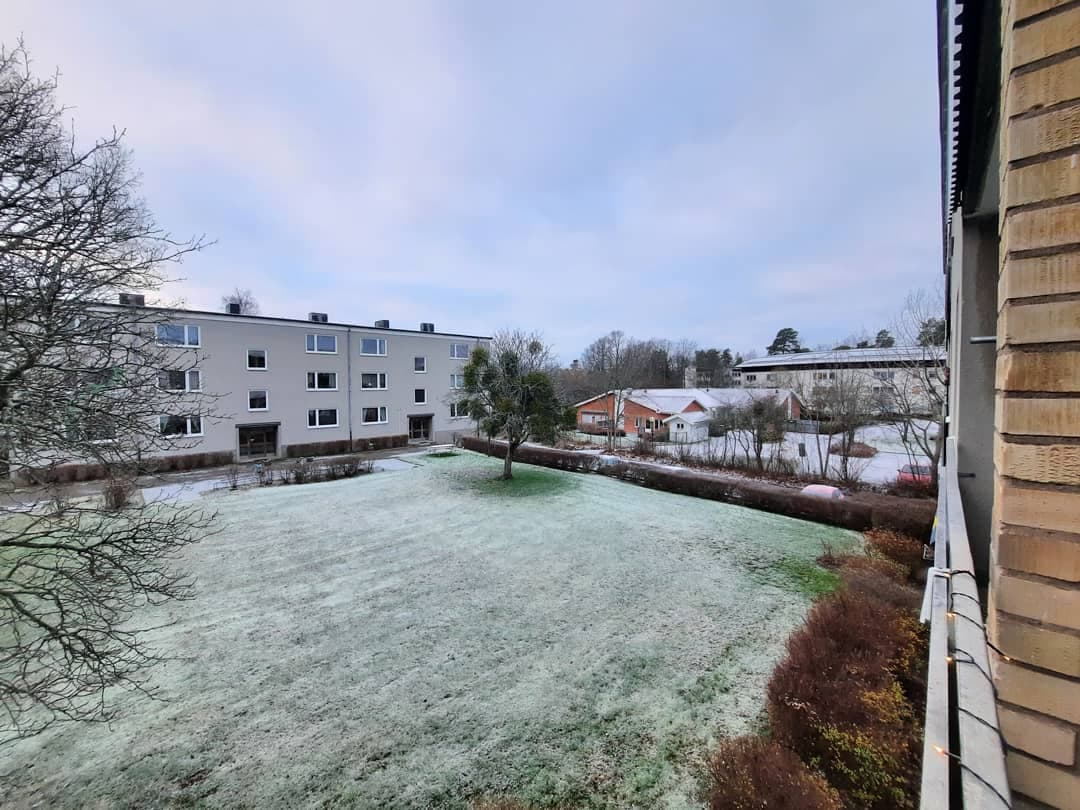
Would you move to a different city in Sweden if the right job opportunity was offered to you?
Vedrana: Yes. I would like to go to Gothenburg or Stockholm. It's more urban there, more to see and do, and more opportunities.
Marin: I would like to go to the north of Sweden. It's even colder and more remote there. And more snowmobiles. But, they only do mining there, and I don't know how to mine, so I'm not sure if I could find something there.
How different is the food in Sweden?
Vedrana: We don't eat meat, so we got used to cooking for ourselves at home before we moved from Osijek to Sweden. So, we haven't noticed a big change in what we eat. We do both eat fish. The kinds of fish you can buy here are really different. We sometimes eat salmon steaks. You never really saw those much in Osijek. Salmon is not so expensive here like it is in Croatia.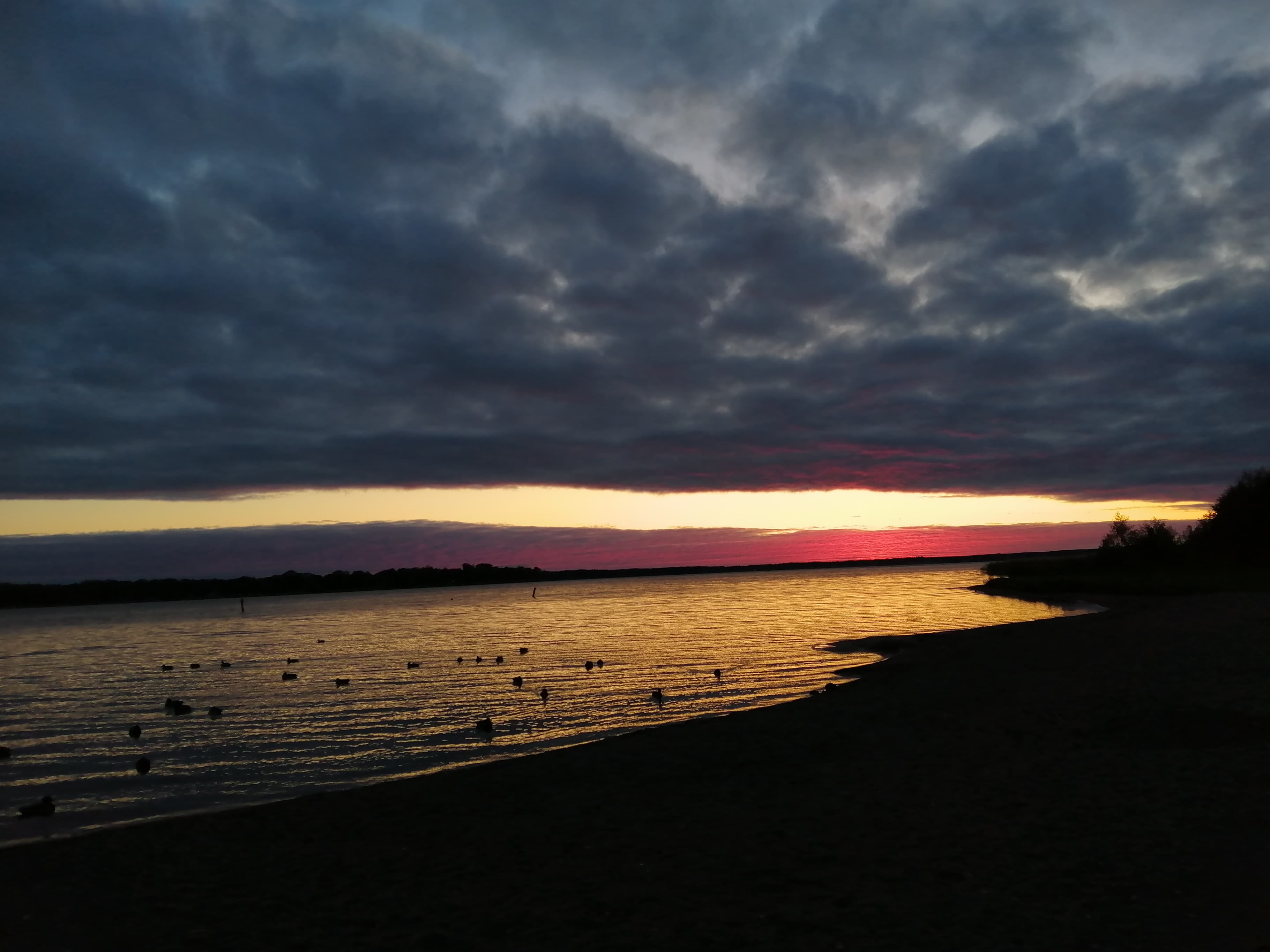 "In the summertime, it is light all the time. The sun comes up around 3am and stays up until 11pm, but there is light all the time. I like it. I don't have trouble sleeping through it. Marin did, at first. In winter, there is no sun. It gets lighter around 9am and that lasts until around 3pm. But, there is no sun. It's like that from late October until March" Vedrana
"In the summertime, it is light all the time. The sun comes up around 3am and stays up until 11pm, but there is light all the time. I like it. I don't have trouble sleeping through it. Marin did, at first. In winter, there is no sun. It gets lighter around 9am and that lasts until around 3pm. But, there is no sun. It's like that from late October until March" Vedrana
Marin: People are a lot calmer here. Driving is different. There are not so many cars on the road in Osijek, but here, nobody sounds their horn at you or sticks their middle finger up at you because they don't like the way you drive. Nobody seems to be in a rush.
Marin: Alcohol is expensive here if you go to a bar or club. In Osijek, you pay maybe double the price for beer in a bar that you would in the supermarket. Here, the beer you buy for 15 kronas in the store you would pay 70 kronas for in a bar. But, it's not so expensive to go out if you work full time.
Vedrana: Here, you cannot buy alcohol in a store or a supermarket like back home. You have to go to the special Systembolaget store to buy it. You must be 20 years old, it closes at 8pm in the evening, it closes at 3pm on Saturday and is closed on Sunday.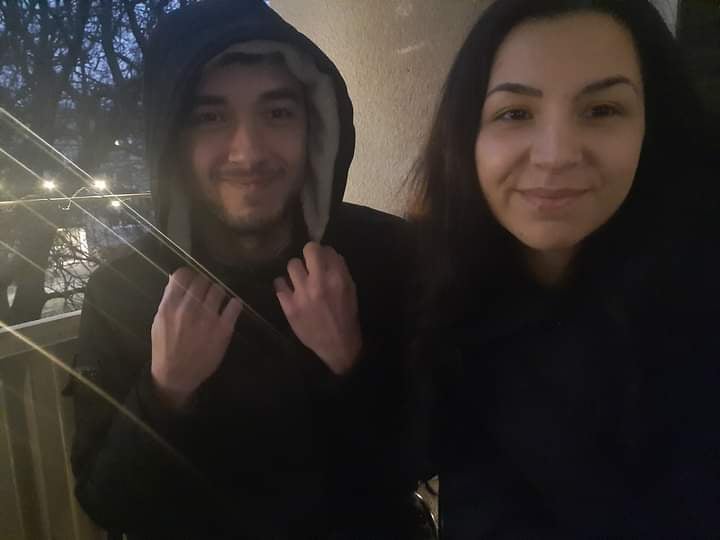
Marin: When you move from Osijek to Sweden, you can meet people from all over the world. It's not like Slavonia. We have neighbours from India. We speak together in English. We have a friend from Sri Lanka. I met a guy at work who is from Africa.
Do you ever regret moving from Osijek to Sweden?
Marin: Not sure yet. We don't regret it, but sometimes we feel nostalgic. But we realise that is amplified by this COVID situation – there's just not been any opportunity to travel back home and visit family and friends.
